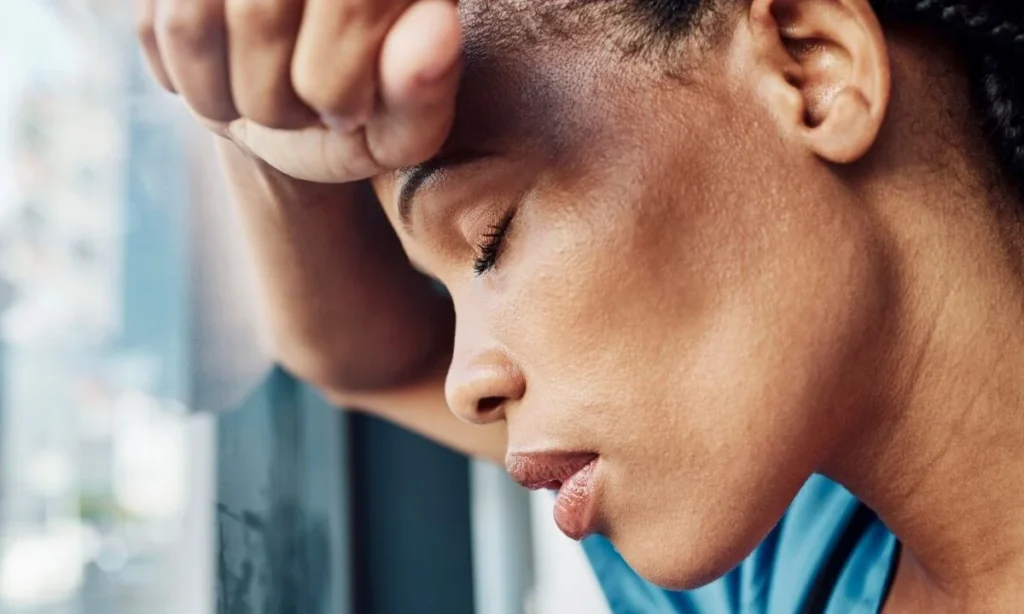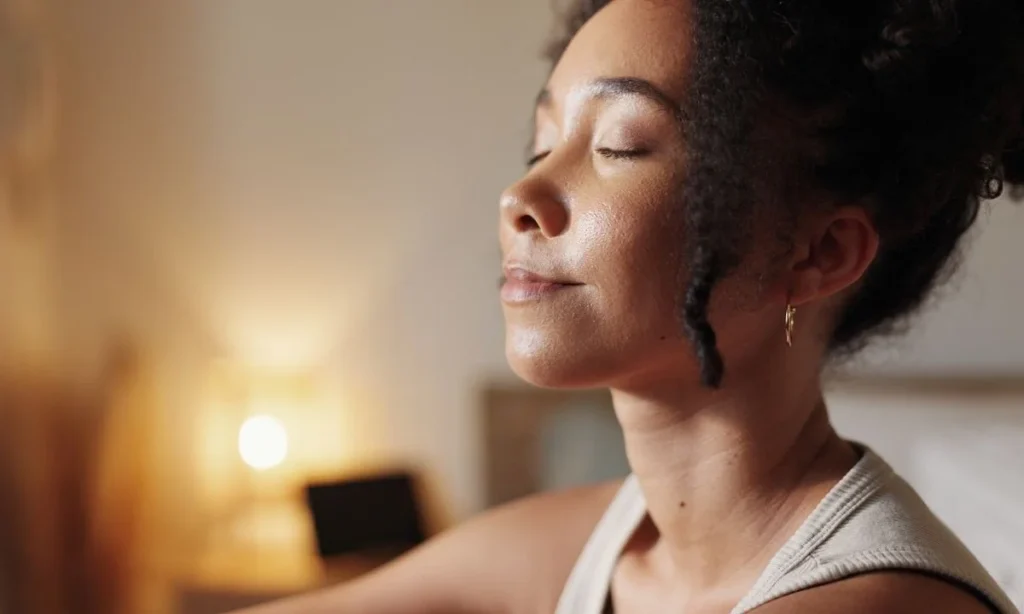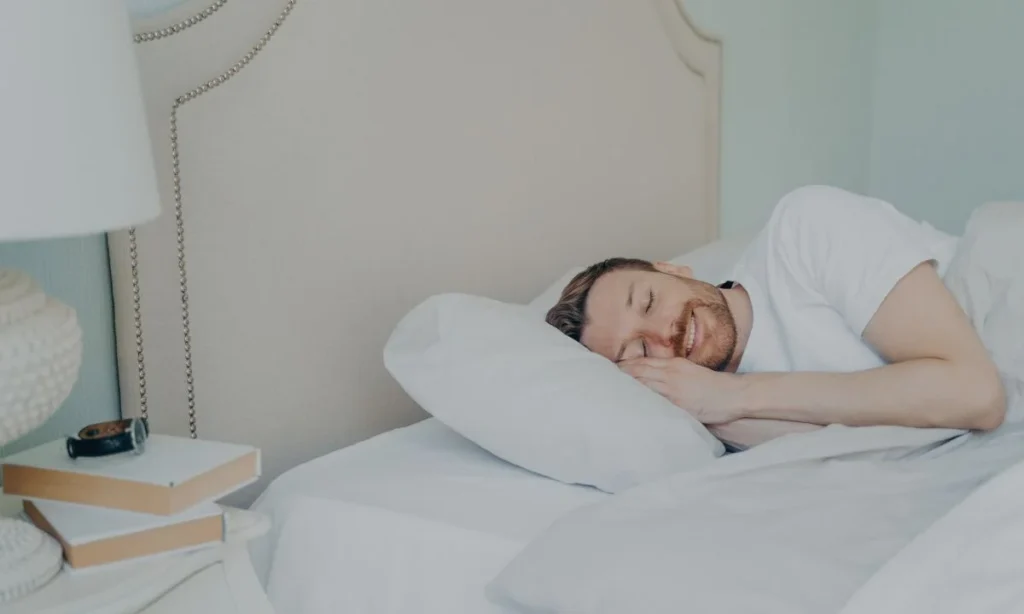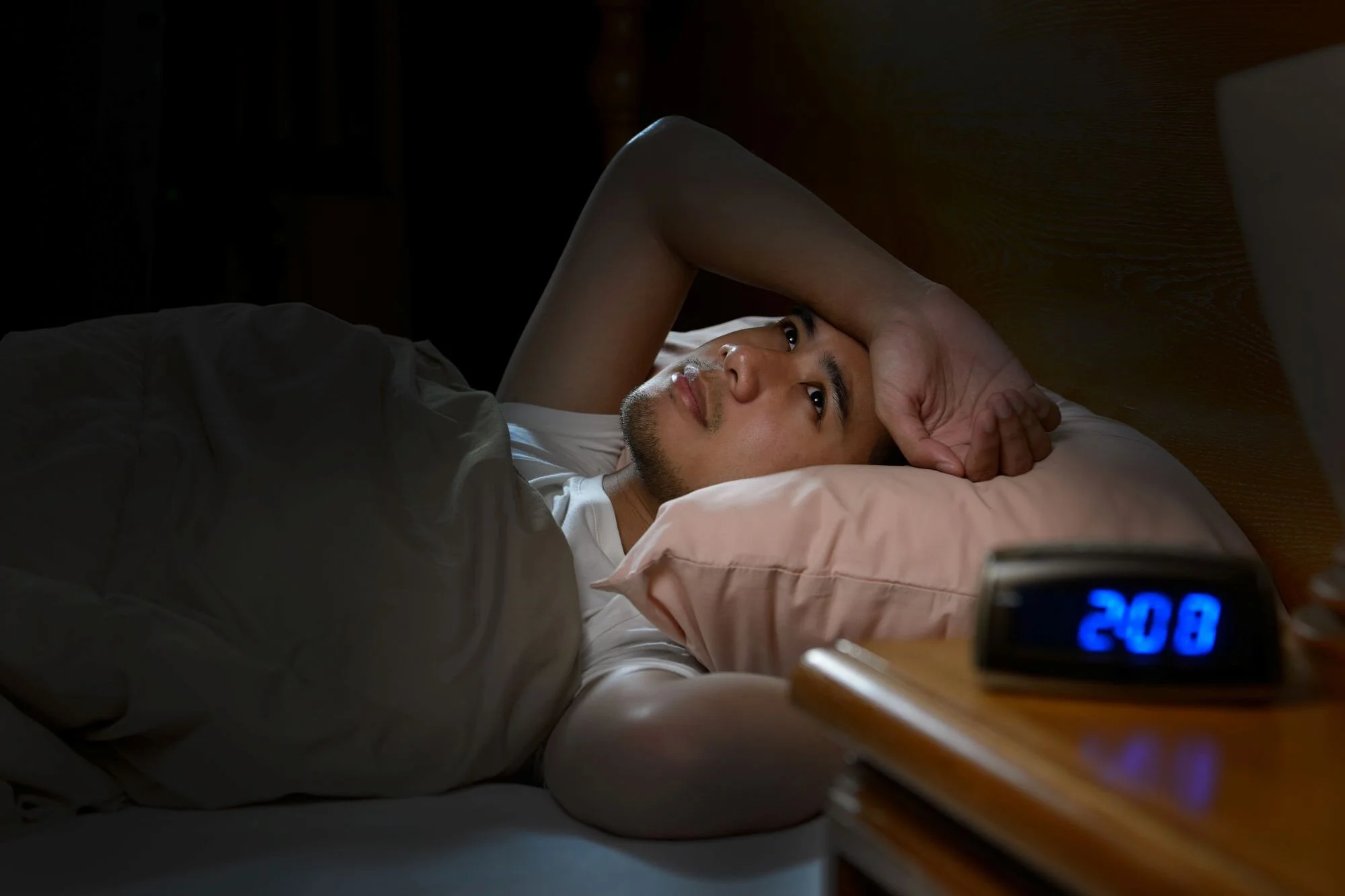That awful feeling when you’re wide awake at 2 a.m. while the rest of the world snoozes is often more than just “bad sleep.” For many, sleeplessness advances into insomnia through repetition. It can occur as trouble falling asleep or staying asleep and waking up too early at least three nights a week for a month or longer.
Occasional nights of tossing and turning due to a stressful day or too much caffeine are okay, but insomnia lingers. It can leave a lasting impact on your day-to-day life, mood, and health.
What Is Cognitive-Behavioral Therapy for Insomnia?

Cognitive-behavioral therapy for chronic sleep struggles, or CBT-I, isn’t a magic pill or a trendy sleep hack. It’s a practical, science-backed approach to fixing sleep problems that’s driven by research. CBT started in the 1960s as a way to treat depression (and later other mental health conditions), and was adapted specifically for insomnia in the 1990s after doctors focused on the connection between thoughts and sleep.
CBT offers a way to look at what you’re thinking about sleep and what you’re doing around bedtime. They help you notice what’s messing with your sleep so you can learn effective tools to fix it.
Why Sleep CBT Works When Other Methods Don’t
Sleeping pills, particularly prescription ones, are a common port of call for those battling to get sufficient sleep. These methods might work for a bit, but can cause tolerance, meaning you need more for the same desired effect.
CBT-I avoids chemical-based attempts and aims to retrain your brain’s association with sleep and restore healthy sleep patterns. Research shows that those who finish CBT-I often sleep better for months and years, even after the therapy ends, highlighting the longevity of this approach.
How Sleep and the Mind Interact

Your brain has a huge impact on your sleep. Let’s look at an example scenario: Someone who’s stressed about a big meeting tomorrow might go to bed worried, notice they can’t sleep, then start freaking out about not sleeping. This cycle only delays sleep further. If this happens nightly, the brain starts to anticipate sleep trouble.
Mental Health and Anxiety: Effects on Sleep
Lots of people with sleep issues also deal with stress and anxiety disorders, mild or otherwise. When your mind is stuck in a state of deep concern, your body stays on high alert, even when you need to wind down. Taking care of one aspect of mental health can help make it easier to heal another aspect of overall health, such as efficient sleep.
Key CBT Exercises to Help You Sleep

Once you’ve learned healthy sleep-friendly methods from a professional, it’s simple enough to implement them into your routine on your own. Some typical CBT-I exercises include:
- Sleep efficiency training – If you spend, for instance, 8 hours in bed and only sleep for 5, sleep restriction helps cut down to only 5.5 initially. You’ll be tired at first, but the goal is to build up enough sleep pressure that your body quickly falls asleep and stays in rest mode once your head hits the pillow.
- Stimulus control – Your bed should make you feel sleepy, not wired. This means no phones, TV, or work in bed. This helps break the connection your brain has made between your bed and being awake.
- Cognitive restructuring – This method helps you identify unhelpful thoughts like “I’ll be useless tomorrow if I don’t fall asleep right now” and replace them with more realistic and reassuring ones like “I’ve managed before.” Research shows this helps lessen sleep-related anxiety.
- Paradoxical intention – This technique works great for people who try too hard to sleep. Instead of forcing it, you lie in bed trying to stay awake without doing anything stimulating. This removes the pressure and helps you doze off naturally.
- Relaxation training – Deep breathing, muscle relaxation, or other ways to calm anxiety help signal to your body that it’s safe to power down.
- Sleep hygiene and habits – Some basics make a huge difference, such as cutting afternoon caffeine, keeping consistent sleep hours, making your bedroom dark and cool, and having a consistent wind-down routine.
Get Better Sleep to Improve Your Mental Health

Sleep and mental health are connected. Poor sleep could exacerbate anxiety, and similarly, anxiety can worsen sleep. But the reverse is thankfully also true: better sleep helps your mental health, and improved mental health helps your sleep.
If you’ve tried all the usual sleep advice and medications with no luck, there might be something deeper going on that requires more specialized attention. CBT-I gives you real tools to beat insomnia. If anxiety or other underlying mental health concerns are keeping you up at night, there are different types of professional care available.
Don’t give up; good sleep is possible, even if it’s been years since you’ve had it.




